Pancreatitis Pain Treatment
Take the first step toward relief. Complete the form, and we’ll reach out to you for a confidential discussion about your needs.
Overview
Pancreatitis is the inflammation of the pancreas. The pancreas is a large gland behind the stomach and near the first part of the small intestine. The pancreas secretes digestive juices into the small intestine through a pancreatic duct tube.
Pancreatitis inflammation mostly happens when digestive enzymes start digesting the pancreas. The illness can be acute or chronic, depending on the severity of the case. Either form is said to be severe and can lead to complications. Thus, proper pancreatitis treatment is essential. Acute Pancreatitis occurs almost suddenly, but it can be treated in a few days.
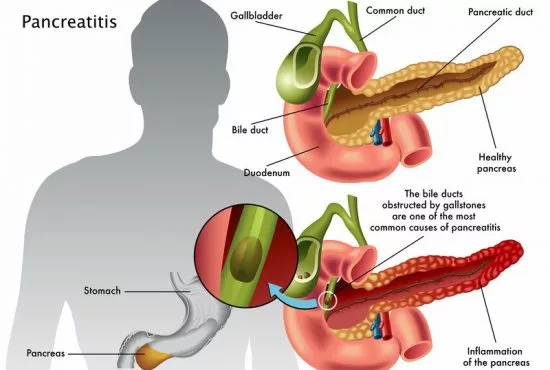
Pancreatitis Pain Causes and Symptoms
Causes of Pancreatitis Pain
The cause of Pancreatitis may involve the activation of digestive enzymes when they are still in the pancreas; thus, it irritates the cells of the pancreas and causes inflammation.
Acute Pancreatitis pain, when repeated and the symptoms become severe, can lead to chronic Pancreatitis. The illness causes digestive problems and diabetes.
The main problems that lead to Pancreatitis are:
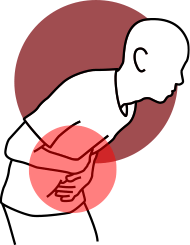
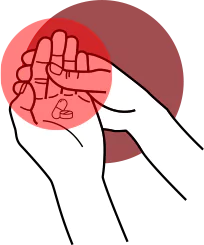

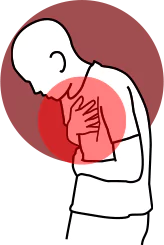
Symptoms of Pancreatitis
The symptoms may vary from patient to patient, depending on the severity of the case.

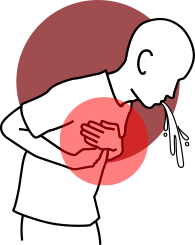
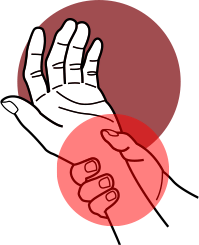
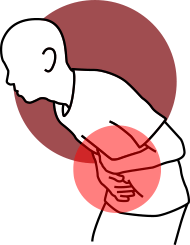
Complications
Pancreatitis can lead to severe complications. This may involve:
Infection: Acute pancreatitis can make your pancreas weak, easily acquire bacteria-related problems, and cause disease. Pancreatic disorders are intensive and may need surgery at the end to remove the infected tissue.
Kidney Failure: Acute pancreatitis can also cause kidney failure and can be treated with dialysis if the problem persists.
Pancreatic Cancer: The inflammation caused by chronic Pancreatitis may develop pancreatic cancer. The long-prevailing condition causes chronic illness.
Malnutrition: Acute and chronic Pancreatitis can lead to malnutrition, weight loss, and diarrhea. Acute and chronic Pancreatitis can produce fewer enzymes that are required to break down and process nutrients from the food one intakes.
Breathing Problem: Acute pancreatitis can lead to a fall in oxygen levels in your blood. It can lead to harmful effects on the lungs.
Diabetes: Pancreatitis can damage the insulin-producing cells in your pancreas, ultimately leading to diabetes. Thus it increases the blood sugar level in your body.
When To See A Doctor?
It is pretty rare when Pancreatitis needs immediate emergency attention. Though, a medical emergency is required when:
- You are suffering severe Pain in your abdomen, and the sitting problem persists.
- The patient is facing trouble controlling the bowel, and there is a stool problem.

Effective Treatment Options To Relieve Pancreatitis Pain
Reach out to us today to schedule a consultation. Our dedicated experts are here to help you find relief from pancreatitis pain.
Pancreatitis Pain Relief Treatment At Padda Institute
Medication may help manage pancreatitis pain and offer temporary relief. Patients may receive artificial digestive enzymes for chronic Pancreatitis if the production is insufficient.
Patients with severe infections may need surgery if other treatments do not work well. If gallstones are detected, surgery is required to remove them. The surgery removes the pancreas’s dead parts and all the possible infections.
At Padda Institute, we offer celiac plexus block treatment to diagnose and treat acute & chronic Pancreatitis or pancreatic cancer. The procedure usually takes up to one hour; being an outpatient procedure, you may go home the same day.
Nutrition Diet
Low fat and a healthy balanced diet are essential for pancreatitis treatment. Patients need to monitor the amount of fat they consume. You may avoid some food:




At Padda Institute, we believe in finding the root cause of Pain and treating it. The nutritional diet plays an essential role, so we offer a healthy diet plan along with the treatment. The doctors and physicians here at Padda Institute are the best in their respective fields. They provide utmost care and treatment for Pancreatitis, which covers both acute and Chronic Pancreatitis. The patients are treated and given proper treatment by their primary doctor for overall pancreatitis pain management.
Send A Message
For questions and concerns, please fill out the form below.
Frequently Asked Questions
The majority of acute pancreatic cases get better with treatment. However, the National Pancreas Foundation estimates that 15% of people with acute pancreatitis will later develop a severe condition that can result in infection and multiple organ failure, both of which can be fatal.
The pain might start gradually or suddenly. It can range from mild to severe, and can spread from the upper abdomen into the back.
Although pancreatitis cannot entirely be prevented, there can be steps taken to reduce risk factors, such as,
- Maintaining healthy weight
- Avoiding intake of alcohol and smoke
- Regular exercises
In case of acute pancreatitis, mild symptoms usually cure with time.
But based on the cause of the inflammation, more severe cases of acute or chronic pancreatitis may require IV fluids, medicines, and even surgery.
Gallstones are the most typical reason for pancreatitis. Other risk factors include:
- Abdomen injury
- Pancreatic cancer
- A family history of pancreatitis
- Genetic disorders
- Smoking and alcoholism
Although pancreatitis does not directly cause pancreatic cancer, it is a risk factor since people with chronic pancreatitis have a threefold risk of getting the condition.
In most cases, acute pancreatitis is curable with timely and adequate treatment. However, there is no cure for chronic pancreatitis, which causes long-lasting inflammation and damage.
Pain Conditions We Treat
At Padda Institute, our pain management specialists & pain specialist doctors provide you the guidance and treatments tailored to your needs. We are best at what we do; we diagnose and evaluate to determine your best treatment plan, so that you can experience chronic pain relief like never before.
